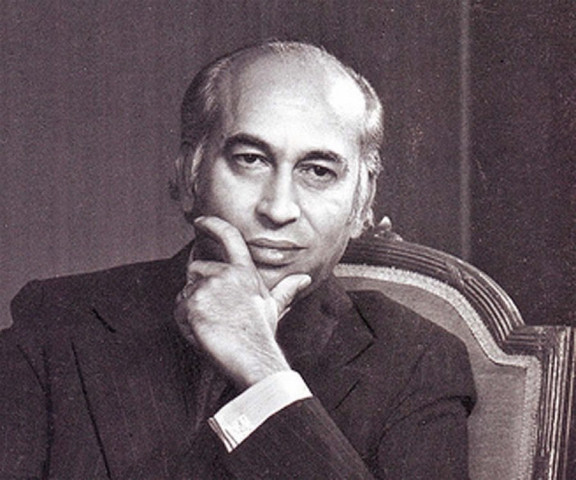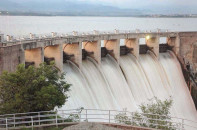SC seeks evidence of bias in Bhutto hanging case
Lengthy judgment in criminal case unprecedented in history, remarks CJ

A nine-judge larger bench of the Supreme Court has raised concerns regarding the unusually lengthy judgment in the case of the late Zulfikar Ali Bhutto four decades ago. The bench, led by Chief Justice Qazi Faez Isa, solicited evidence from lawyers to demonstrate potential bias among the judges involved.
This hearing pertains to a presidential reference against the Supreme Court's decision leading to the execution of former prime minister Bhutto in 1979. Initiated by then-president Asif Zardari twelve years ago, the reference remains under scrutiny.
Chief Justice Isa queried whether any previous criminal case had yielded a 935-page judgment, while Justice Jamal Mandokhel suggested that the extensive detail might indicate disagreement among the judges who authored it.
Justice Mansoor Ali Shah, also on the bench, emphasized the necessity of presenting evidence from the court record to substantiate claims of judicial pressure or biased decision-making.
Late Bhutto was convicted in the murder case of Muhammad Khan Kasuri by the Lahore High Court (LHC), over a year after the toppling of his government by military dictator Gen Ziaul Haq. Later Bhutto’s appeal against his conviction was rejected by the Supreme Court through a 4-3 split verdict.
Bhutto’s Pakistan Peoples Party (PPP) always contended that the party founder and the country’s first elected prime minister was falsely convicted and hanged. During the PPP government from 2008-13, the then president sent a reference to the apex court to review the case and acquit Bhutto.
During the hearing, the chief justice remarked that when decision of the Bhutto case was reserved, two important developments took place: the then chief justice became the acting president, and that he praised Ziaul Haq for his efforts to enforce Islamic system in the country.
Amicus curie Khalid Javed Khan told the court that had the judiciary been independent at that time, Bhutto would not have been hanged. At that time, he pointed out, there were ad hoc judges in the Supreme Court and thousands of people were put in jails, even some people were hanged.
Also sitting on the bench, Justice Sardar Tariq Masood asked how the court could examine bias without invalidating a judicial decision. He also wondered how could the court move forward without overturning those decisions and whether the court should set aside judgments of the trial court and in the revisions.
Khalid Javed Khan mentioned a judgment authored by Justice Athar Minullah, which said that the decision to hang Bhutto was not correct. On that, Justice Shah said that now it came as a declaration. Later, the hearing was adjourned until Tuesday (today).



















COMMENTS
Comments are moderated and generally will be posted if they are on-topic and not abusive.
For more information, please see our Comments FAQ